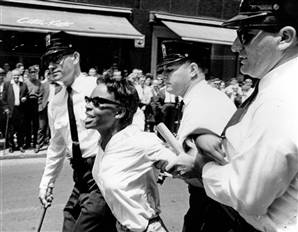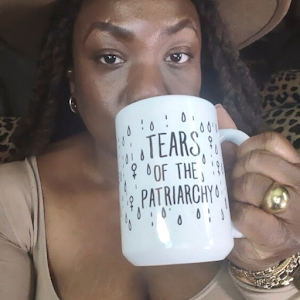
While everyone uses this day home from work and school to reflect on Martin Luther King's birthday, attend special observances and programs, or simply to piss around (or however you choose to spend your free day off)I'd like to take this opportunity to recognize the women who made a significant impact during the Civil Rights Movement. It's rare that we read or hear about how Black women (in addition to Rosa Parks) have impacted our (black) history and women's history in general. Stereotyped, hypersexualized, and often labeled as 'right bitches (or hoes, depending on who's hurling the insult), Black women... we don't get a fair or accurate rap sometimes. Zora Neale Hurston's contribution to African-American literature was written off by her Black, male literary peers, who accused her of "romanticizing" the Black experience, but that's for another post. My point is, we often can't get a break or any cred for the things we've done in the past and the ways in which we continue to thrive presently. We hear so much about the indelible mark Rosa Parks - left, it probably leaves some folks wondering if she was the ONLY black woman who fought for equality during this time. She's not.
JoAnne Gibson Robinson was a professor of English at Alabama State and member of the Women's Political Council. Months prior to Rosa Park's negative bus experience Gibson-Robinson experienced similar treatment from an abusive Montgomery City Lines driver and used her membership to the WPC as a catalyst for change. Ella Baker. Septima Poinsette Clark. Fannie Lou Hamer. Civil Rights overlooked revolutionaries who remained stealth, in the background... perhaps due to sexism, racism, and other biases. Author Lynne Olsen writes:
After the bus boycott got going and (Martin Luther) King got involved, they wouldn’t even let Rosa Parks speak at the first mass meeting. She asked to speak, and one of the ministers said he thought she had done enough.Olson added that Parks is often depicted as a deferential woman who defied segregation laws at the urging of movement leaders, but in fact she had for years quietly pushed for racial justice — and she had carefully planned the actions that led to her arrest. She was not just a symbol, She was an agent. Olsen also added. I think it's great that we get to observe the significance of Martin Luther King's birthday and that it was made into a national holiday. I think he also wouldn't mind us extending thanks to some of the women that helped him make such relevant and important changes in helping him further his cause. ...
- Ella Baker was a charismatic labor organizer and longtime leader in the Southern Christian Leadership Conference. She believed the movement should not place too much emphasis on leaders.
- Septima Poinsette Clark, often called the “queen mother” of civil rights, was an educator and National Association for the Advancement of Colored People activist decades before the nation’s attention turned to racial equality.
- Fannie Lou Hamer, a Mississippi sharecropper, was beaten and jailed in 1962 for trying to register to vote. She co-founded the Mississippi Freedom Democratic Party and gave a fiery speech at the 1964 Democratic National Convention.
- Vivian Malone Jones defied segregationist Alabama Gov. George C. Wallace to enroll in the University of Alabama in 1963 and later worked in the civil rights division of the U.S. Justice Department.









3 comments
I'm often glad when people don't get recognized...then they can remain untainted. Alot of things to happen to people who get spotlighted for doing things (those that aren't killed).
A side note I keep hoping that it was people around Rosa Parks and not really her who sued Outcast for having a song with her name as the title.
i agree with this post. this happened in the Black Power movement as well. women were the foot soldiers but treated less than.
in S. Africa, the same thing went down. Women did much of the back breaking work but got almost no recognition.
@amadeo: I understand your point, but for posterity's sake (esp. young Black women), I think documenting and teaching this stuff, and people knowing how these issues REALLY transpired is long overdue.
@Bro Omi: I'm not even going to comment on the hypocrisy of the Panthers. A lot of these Black women, took the rap for some of these dudes, during the Black power/Black "nationalist" movement, and served some hard time. While a lot of these dudes were sleeping with white women. And suppressing the voices of Black women, trying to further the cause out loud, too.
Post a Comment